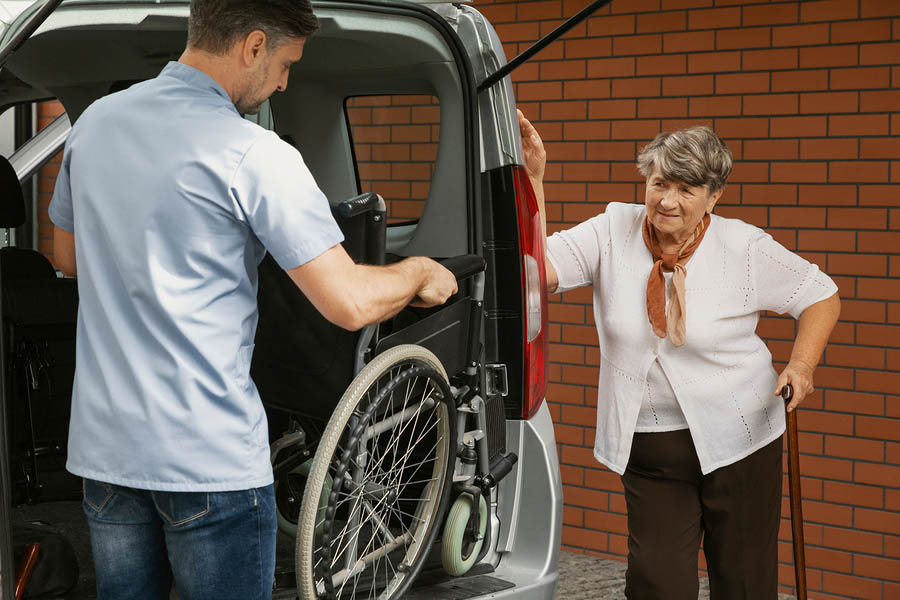Long Distance Elderly Transportation
Category:

Long-distance traveling can be difficult for elderly people due to mobility issues and health complications. In this post, we will explore transportation methods, travel tips, and services.
How Does Aging Affect Traveling Ability?
Driving is one of the most straightforward modes of transport but that is not always an option. When it comes to elderly transportation, driving ability can be severely impacted with age.
- By age 60, drivers need three times more light than they did at age 20
- Roughly ⅓ of Americans over 65 experience age-related hearing loss, which can hinder one’s ability to hear high-pitched noises such as sirens or car horns
- Pain in muscles or joints may impede reaction time
- Use of over-the-counter or prescription medications may impact one’s ability to drive safely
Assessing Transportation Services for Elderly
When coordinating transportation, elderly disabled people need to keep a few questions in mind. These include:
- Will my insurance cover this?
- Some insurance providers may offer set amounts of transportation for medical purposes.
- Contact your provider for more information.
- Do they offer senior discounts?
- Some public transit services provide senior discounts.
- Check the provider to purchase a discounted pass or ticket.
- Will health conditions be taken into consideration?
- Transportation for handicapped elderly can be difficult due to physical disabilities.
- Consult your doctor before departure to determine your needs during your trip.
- What will I be able to bring with me?
- Check the space you will be traveling in to determine how much you are able to bring.
- Bring all absolutely essential items with you and arrange other transportation options for additional items
Transporting Elderly Cross Country
Long distance elderly transportation can be achieved in numerous ways. In this section, we will give you tips on how to navigate transportation services for elderly and disabled adults.
- By air
- Check with your airline to ensure they can meet any and all accommodations, including:
- Wheelchair
- Assistance navigating airport security
- Assistance traveling between gates if there are layover flights
- Request an aisle seat near a bathroom for easy access
- Pack travel pillow, blanket, and medications for use on the plane
- Check luggage, even carry-ons, for ease of transport through the airport and plane
- Check with your airline to ensure they can meet any and all accommodations, including:
- By car
- Make sure the vehicle is equipped to seat you properly
- Bring medication if prone to car sickness
- Budget stops into your itinerary for meals, restroom breaks, sleep, or to stretch your body
- Non-emergency medical transport
- Look for a service that provides adequate space and medical equipment for non-emergency needs
- Use a service with medical professionals and professional drivers in attendance to ensure the elderly person will get to all destinations safely
- Check with the service to ensure they keep rest stops in mind
Examples of Transportation Services for Elderly People
Options for elderly transportation services include but are not limited to:
- Paratransit (for those who qualify under the Americans with Disabilities Act)
- Uber or Lyft
- GoGoGrandparent (connects elderly people with rideshare options)
- Veyo (partners with insurance companies and health facilities to provide transportation)
- Your local county public transportation service (call your county’s Area Agency on Aging or use ElderCareLocator)
For further reading on long-distance caregiving, click here.
Subscribe
Date: June 4, 2019
Category:


